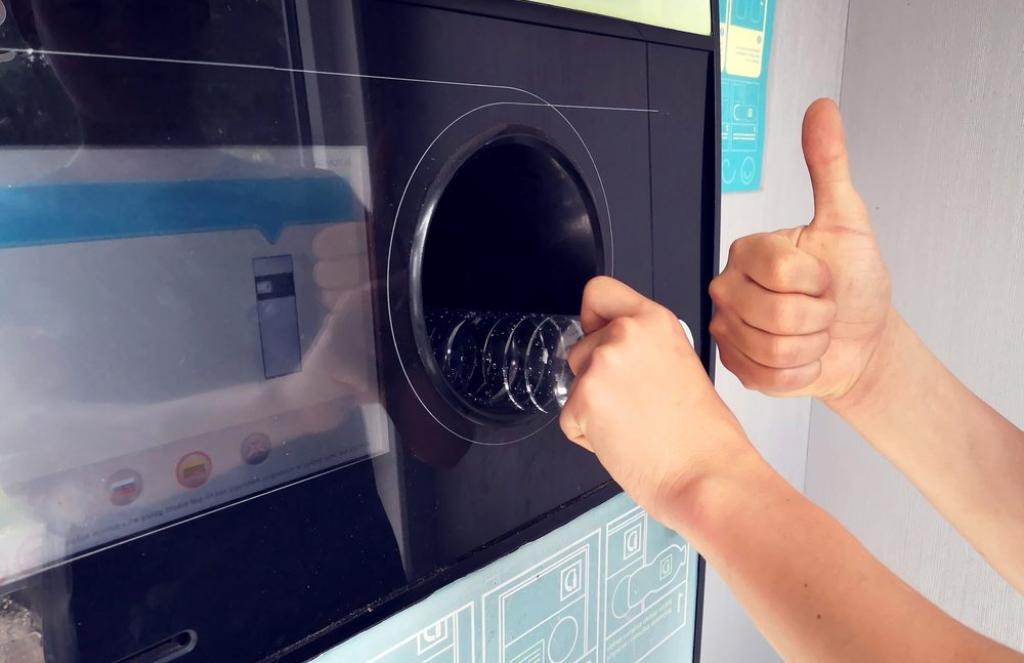Thessaloniki gets ready for its metro launch in November
The underground rapid transit lines have been under construction for almost two decades due to various project delays
 TheMayor.EU logo
TheMayor.EU logo 
Deposit-refund system is about to make its debut in Romania on the last day of this month, Source: Depositphotos
Customers will be able to get money back after returning empty beverage containers, starting on 30 November
Romania is looking forward to 30 November – the day when the new deposit-refund system for recyclable plastic containers will officially launch in the country. The government aims to institute this important step as part of the drive towards a functional circular economy and increasing decarbonization rates.
From the last of the month onward, shops selling recyclable beverage containers made of recyclable plastic, glass or aluminium will have to accept back used bottles and pay 0.50 lei (0.10 euro cents) for each of them to customers.
Introducing the sustainable collection system in the Eastern European country has not been a smooth process. In reality, it was originally meant to take off back in January 2021 at the height of the COVID pandemic.
It was then postponed to 1 October 2022 and then once again to the current date. As things turned out, it was large-size retailers in the country that were behind the delays.
"The Romanian government has shown flexibility and understanding, but we cannot perpetuate this model of postponement," said environmental minister Mircea Fechet, who asserted that he will personally insert the first PET bottle into the automatic collection machine on 30 November.
Interestingly enough, the system, which in Romania bears the name RetuRO, was created in its initial phase by the associations of beverage producers and traders in the country, and only later did the Romanian state become involved.
With this, the Eastern European country will join the ranks of others in the EU, which had already implemented the system seen as a key part of a circular economy. According to a July 2023 report by Investigate Europe, deposit and refund schemes are already active in 13 European countries, with most of them having a functioning system before 2007. Since then, only Lithuania has introduced it, in 2016.

The underground rapid transit lines have been under construction for almost two decades due to various project delays

Now you can get your wine in Talence by paying directly in Bitcoin

That’s because the state has to spend money on updating the railway infrastructure rather than subsidizing the cost of the popular pass

Rethinking renewable energy sources for the urban landscape

The examples, compiled by Beyond Fossil Fuels, can inform and inspire communities and entrepreneurs that still feel trepidation at the prospect of energy transition

Now you can get your wine in Talence by paying directly in Bitcoin

The 10th European Conference on Sustainable Cities and Towns (ESCT) sets the stage for stronger cooperation between the EU, national and local level to fast track Europe's transition to climate neutrality.

At least, that’s the promise made by the mayor of Paris, Anne Hidalgo

The underground rapid transit lines have been under construction for almost two decades due to various project delays

At least, that’s the promise made by the mayor of Paris, Anne Hidalgo

Hostal de Pinós is located in the geographical centre of the autonomous region

Despite its church-y name, the district has long been known as the hangout spot for the artsy crowds

Urban dwellers across the EU are having a say in making their surroundings friendlier to people and the environment.

Forests in the EU can help green the European construction industry and bolster a continent-wide push for architectural improvements.

Apply by 10 November and do your part for the transformation of European public spaces

An interview with the Mayor of a Polish city that seeks to reinvent itself

An interview with the newly elected ICLEI President and Mayor of Malmö

A conversation with the Mayor of Lisbon about the spirit and dimensions of innovation present in the Portuguese capital














